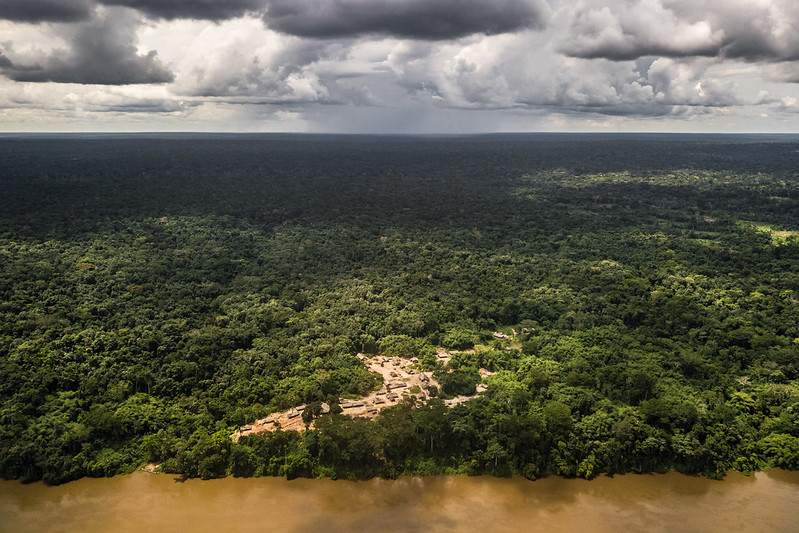New research has shown that the Congo peatlands- which span the Democratic Republic of Congo and the Republic of Congo, are the largest in the tropics and cover 17m hectares (42m acres)- are a huge carbon “timebomb” that could be triggered by the climate crisis.
Published in the journal Nature, the research used cores taken through the peat layers to reconstruct the history of the peatlands and also showed that drought caused the water table to drop, exposing peat to the air and decomposition.
The study also found that before returning to accumulating carbon 2,000 years ago, the peatlands flipped from storing carbon to releasing it into the atmosphere when the climate became drier 5,000 years ago.
Now, scientists say that they are worried that human-caused global heating could tip the fragile system over the edge once more, accelerating the climate crisis.
Read also: UN Report: Europe warming at twice the global average
The peatlands are known to store a vast amount of carbon – the equivalent of three years of global fossil fuel emissions. They are also threatened by logging and oil and gas exploitation.
In his reaction to the findings of the research, Prof Simon Lewis, from the University of Leeds, UK, and University College London, and a senior author of the study said, “We know today that these peatlands are very close to that tipping point where they could release billions of tonnes of carbon to the atmosphere,”.
Speaking further, he said, “We don’t know exactly how close but we do know that for the last couple of decades, droughts have been getting longer in the centre of the Congo basin.
He maintained that the study brings a brutal warning from the past. This is an important message for world leaders gathering at the Cop27 climate talks.
A lecturer at the University of Kisangani, in the Democratic Republic of the Congo, who led the expeditions to collect peat samples, Prof Corneille Ewango said that the peatlands are more vulnerable than we thought, and everyone must play their role in protecting them, adding that polluting countries must cut their carbon emissions fast.
On his part, the Republic of the Congo’s environment minister, Arlette Soudan-Nonault, said that it is more than ever essential that rich and polluting countries commit financially to the protection of our peatlands, our biodiversity and local populations.
“If we want to prevent this gigantic carbon store from turning into a timebomb, our partners must understand that this invaluable planetary ecosystem service cannot remain free forever.” he said.
Story was adapted from the Guardian.
